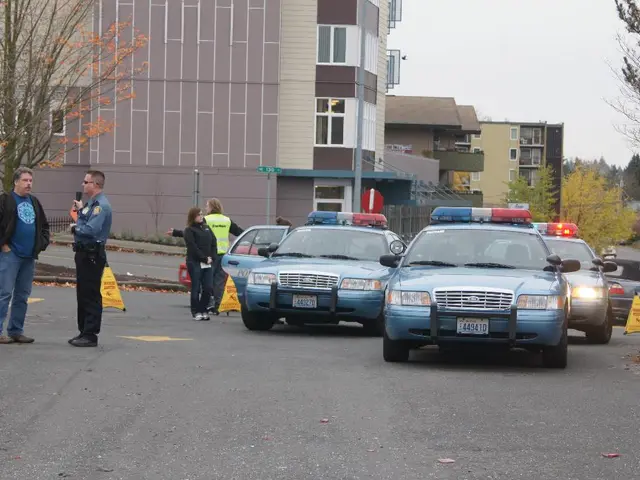Uniting more strongly as a unified front
In the first 100 days of the Black-Red German coalition, led by Chancellor Friedrich Merz, the government is grappling with significant challenges. Economic growth has stalled, internal political frictions are mounting, and migration policy remains a contentious issue.
Jens Spahn, leader of the Union faction, has expressed the responsibility of the coalition, distinguishing it from the far-right Alternative for Germany (AfD) party. However, his ability to secure his faction's support for key decisions, such as the election of judges to the Federal Constitutional Court, has been put to the test.
The failed election of a new judge has highlighted the fragile cooperation and mistrust within the coalition. Dirk Wiese, the parliamentary business manager of the SPD faction, has expressed the need for clarification regarding the trust issues within the coalition. He also mentioned a retreat with leading faction chairmen scheduled at the end of August to address these concerns.
Economic growth faltered in Q2 2025, with a 0.1% contraction. Factors such as falling car exports under U.S. tariffs and unresolved energy policy issues have contributed to this stagnation. Merz's decision to retreat from reconsidering nuclear energy, contrary to campaign pledges, has created industry uncertainty.
Migration remains a volatile issue, causing coalition strains. Asylum requests have decreased due to tougher border controls, but SPD opposition and judicial rulings have obstructed harsher measures like mass deportations. Violent incidents linked to migrants have fueled public anti-migrant sentiment and calls for stricter action, but political deadlock hinders decisive responses.
Merz’s unilateral migration policies have sparked controversy due to perceived cooperation with the AfD party, leading to nationwide protests and criticism from party leaders and former Chancellor Merkel.
Despite these challenges, Dirk Wiese remains optimistic about the future of the government's cooperation. However, the public's dissatisfaction is high, with only 28% approving of the government's work and Merz's communication style seen as unconvincing by a majority.
The Black-Red coalition's commitment to success for the good of the country is undeniable. However, the road ahead is fraught with obstacles, and it remains to be seen whether the coalition can navigate these challenges and deliver on its promises.
[1] Economic growth stalls in Q2 2025 [2] Coalition disputes block promised reforms [3] Migration policy deadlocks and controversy [4] Public dissatisfaction with the government's work and Merz's communication style [5] The failed judge appointments highlight coalition fragility and mistrust
Policy-and-legislation debates on key decisions, such as the appointment of judges to the Federal Constitutional Court, are facing challenges due to internal coalition disputes. These disputes are obstructing promised reforms within the Black-Red German coalition.
General-news reports indicate a policy-and-legislation stalemate, as the government's inability to secure coalition support for crucial decisions is causing delays. Moreover, the failed judge appointments have highlighted the fragility and mistrust within the coalition.






